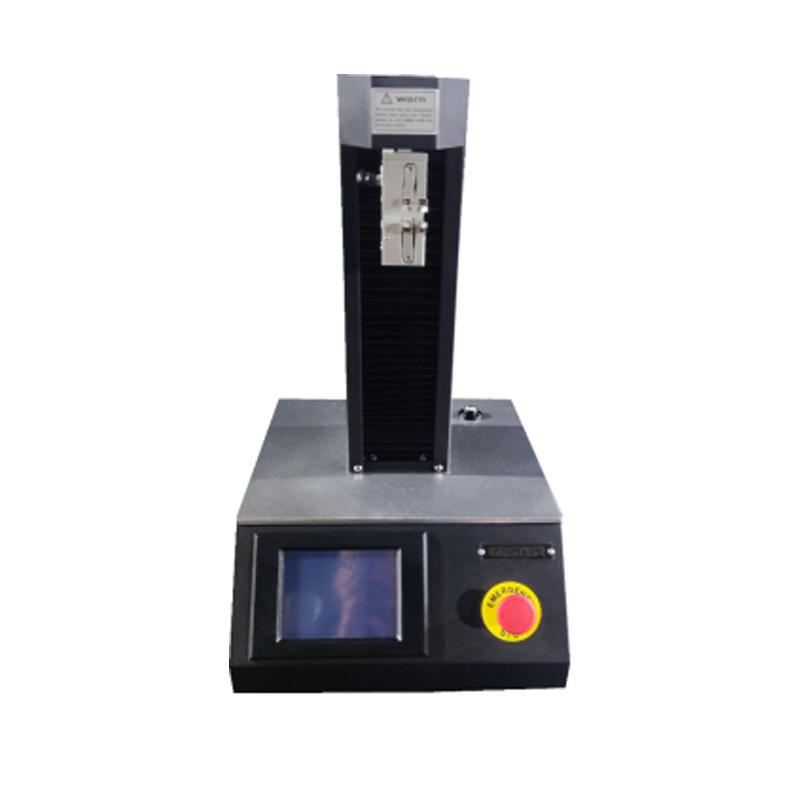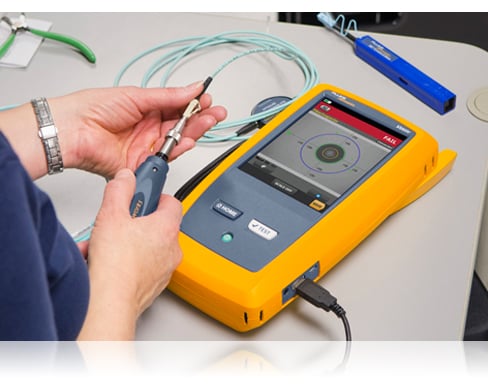A Comprehensive Guide to Optical Measurement System for Fiber Evaluation
When it comes to fiber analysis, recognizing optical dimension systems is important for examining efficiency and guaranteeing high quality. You'll discover important methods like interferometry and spectroscopy, which help you determine crucial criteria. There's more to it than just these techniques; understanding depletion measurement methods can considerably impact your network's effectiveness. As you browse via this overview, you'll uncover insights that might change your method to fiber optics.
Comprehending Optical Measurement Solutions
When you check out optical measurement systems, you'll find they're necessary for assessing fibers with accuracy. These systems make use of light to analyze numerous features of fibers, consisting of size, refractive index, and harmony. By employing techniques like interferometry and spectroscopy, you can gain valuable insights right into the fiber's properties.You'll locate that these systems are created to lessen errors and enhance precision, making certain reliable information for your evaluation. Different configurations, such as single-mode and multi-mode systems, satisfy details fiber types, allowing you to pick the most effective fit for your needs.Moreover, the integration of advanced software program tools helps you analyze the information efficiently, making it easier to recognize any type of disparities or defects. As you explore deeper into these dimension systems, you'll appreciate just how they enhance the analytical procedure and enhance the overall top quality of fiber manufacturing and testing.
Trick Specifications for Fiber Analysis
Trick specifications for fiber analysis play an essential duty in identifying the top quality and efficiency of optical fibers. When you examine a fiber, you'll intend to concentrate on qualities such as attenuation, transmission capacity, and modal dispersion. Depletion measures the loss of signal toughness as light travels via the fiber. A lower depletion value shows much better quality and longer transmission distances - fiber measurement.Bandwidth describes the data-carrying capacity of the fiber and is essential for high-speed interaction. You'll need to examine the bandwidth to assure it satisfies your application needs. Modal dispersion, which arises from the various speeds at which light journeys through different settings in multimode fibers, affects signal clearness
Techniques for Attenuation Measurement

Data transfer and Its Influence On Efficiency
Understanding transmission capacity is necessary for optimizing fiber efficiency, as it directly affects the amount of information that can be transmitted over a network. Higher bandwidth indicates you can send out more details at the same time, enabling faster communication and far better overall efficiency. When you're functioning with optical fibers, it's essential to take into consideration just how bandwidth engages with fiber features, such as core size and product properties.If the transmission capacity is limited, you may experience information loss or slower speeds, affecting your applications. In addition, different kinds of fibers can sustain differing bandwidth levels, so it is necessary to choose the best fiber for your details needs.You should likewise remember that environmental elements, like temperature level and exterior disturbance, can affect data transfer. By comprehending these facets, you can make enlightened decisions to enhance your fiber optic systems, making certain dependable and effective information transmission.
Refractive Index Measurement Approaches

Total Internal Reflection
Overall internal representation (TIR) works as a fundamental concept for measuring the refractive index of fibers. When light journeys from a denser medium to a much less dense one, it can just be completely mirrored if the angle of incidence exceeds a certain threshold, recognized as the vital angle. This phenomenon enables you to determine the refractive index by examining the angles at which light reflects or refracts. By utilizing a setup that guides light into a fiber and determines the resulting angles, you can compute the refractive index precisely. Recognizing TIR not only improves your fiber evaluation however additionally improves the design and performance of optical systems. So, leveraging TIR can bring about much more reliable fiber-based applications.
Interferometric Methods
Building on the concepts of complete inner representation, interferometric strategies provide a powerful ways for determining the refractive index of fibers with high accuracy. These techniques manipulate the disturbance patterns developed when light beam of lights split and recombine after traveling different paths. You can use configurations like the Michelson or Mach-Zehnder interferometer to moved here examine stage changes triggered by changes in refractive index. By thoroughly calibrating your system and examining the resulting edges, you can figure out the refractive index with exceptional precision. It's critical to keep secure ecological problems to decrease mistakes. With these techniques, you'll boost your understanding of fiber residential or commercial properties, resulting in much better performance in various applications, from telecommunications to sensing unit modern technology.
Modal Diffusion and Its Significance
Modal dispersion refers to the dispersing of light pulses as they take a trip through a fiber, which can influence the total efficiency of the system. You'll see that this sensation can bring about indicate distortion, impacting data transmission prices and top quality. Recognizing its importance is important for optimizing fiber optic designs.
Definition of Modal Diffusion
In fiber optics communications, modal dispersion plays a significant duty in establishing signal high quality and transmission speed. It occurs when various light modes take a trip at differing speeds through the fiber. Given that each setting has distinct paths and features, they can reach the receiving end at various times. This time around difference can lead to signify spreading and distortion, which can deteriorate the total efficiency of the communication system. You may experience modal diffusion mainly in multimode fibers, where the numerous paths of light worsen the problem. Comprehending modal diffusion is essential for maximizing fiber layouts and making sure that your interaction systems run effectively, preserving the integrity of the transmitted signals over longer ranges.
Impacts on Fiber Efficiency
Comprehending modal diffusion helps highlight its results on fiber performance. This phenomenon takes place when different modes of light traveling at differing speeds within the fiber, causing signify spreading gradually. As you assess fiber optics, you'll notice that enhanced modal diffusion can greatly deteriorate signal high quality, causing reduced data transfer and longer transmission ranges. In sensible terms, this means your data can arrive distorted or delayed, affecting total interaction efficiency. To mitigate these effects, you may think about making use of single-mode fibers, which decrease modal diffusion. By choosing the right fiber type and understanding how modal dispersion influences performance, you can enhance transmission high quality and assurance trustworthy information transfer in your optical dimension systems.
Devices and Technologies for Optical Measurements
When it pertains to optical dimensions, a number of ingenious devices and innovations are at your disposal to improve fiber analysis. You'll find fiber optic testers, which assess signal quality and efficiency, essential for maintaining ideal network efficiency. Optical time-domain reflectometers (OTDRs) are critical for situating mistakes and determining loss over distances, offering comprehensive insights right into fiber honesty. Furthermore, spectrometers can examine light spectra, helping you recognize product buildings and composition.Don' t forget the value of imaging systems, like digital microscopes, that allow you to aesthetically examine fiber surface areas for issues. Consider making use of polarization analyzers to determine tension and strain in fibers, which is essential for recognizing their habits under various problems. By leveraging these tools and technologies, you can greatly boost your fiber analysis processes, you can try here making certain dependability and high performance in your optical networks.
Frequently Asked Questions
What Are the Prices Connected With Optical Measurement Solutions?
The prices related to optical dimension systems can vary greatly. You'll need to examine equipment costs, upkeep fees, software program licenses, and potential training costs. Budgeting carefully will assist you stay clear of unexpected monetary obstacles down the line.

Just How Often Should Fiber Analysis Be Performed?
You should perform fiber analysis routinely, usually every six months or after considerable modifications in the atmosphere (optical measurement system). This ensures suitable efficiency and assists determine prospective problems before they influence your system's effectiveness and dependability
Can Optical Measurement Equipments Be Adjusted in the house?
Yes, you can adjust optical measurement systems at home, yet it requires precision. Ensure you adhere to the maker's guidelines, make use of find here proper calibration requirements, and confirm your outcomes to ensure accuracy in your measurements.
What Industries Generally Utilize Optical Measurement Systems?
You'll locate optical measurement systems widely used in sectors like telecoms, production, health care, and research. They're important for top quality control, fiber evaluation, and guaranteeing precise dimensions in different applications, boosting performance and accuracy throughout sectors.
Exist Any Security Interest In Optical Measurement Equipments?
Yes, there are safety worry about optical measurement systems. You must always use protective eyeglasses to secure your eyes from intense lights and guarantee proper training to take care of equipment securely and stay clear of accidents.